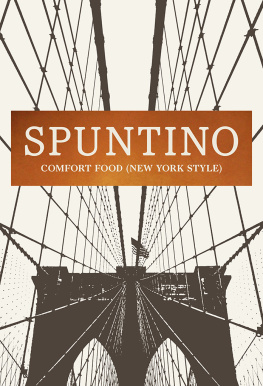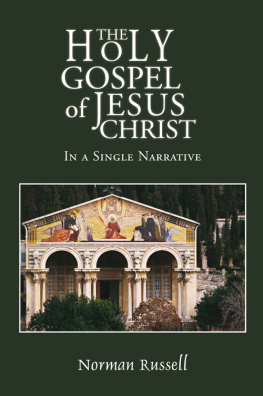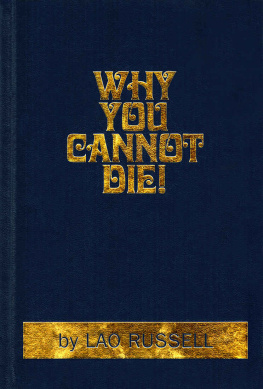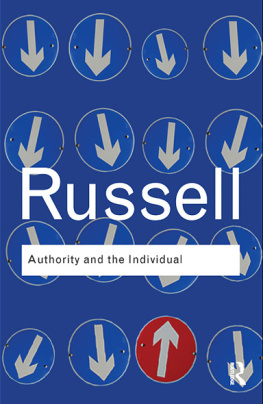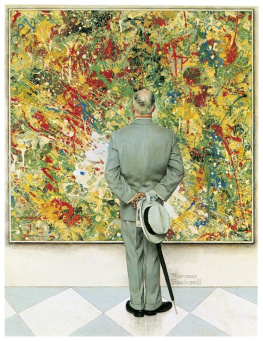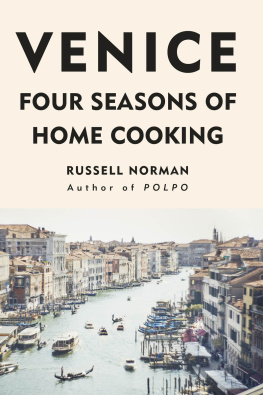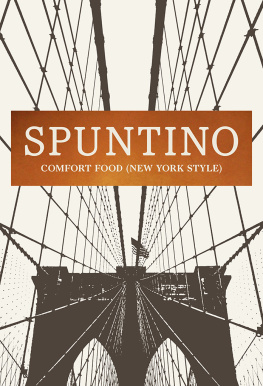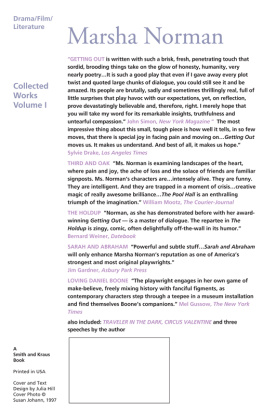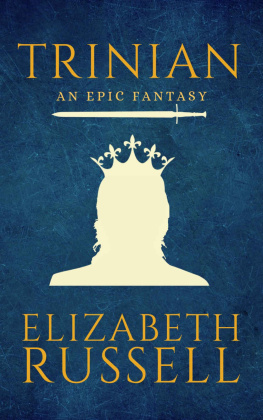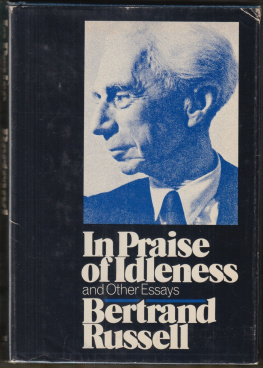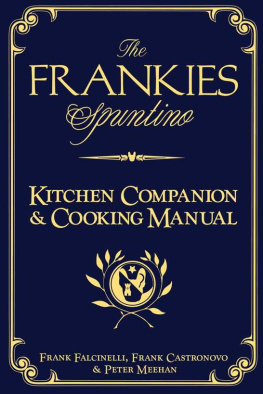Russell Norman - SPUNTINO
Here you can read online Russell Norman - SPUNTINO full text of the book (entire story) in english for free. Download pdf and epub, get meaning, cover and reviews about this ebook. year: 2018, publisher: Bloomsbury Publishing, genre: Home and family. Description of the work, (preface) as well as reviews are available. Best literature library LitArk.com created for fans of good reading and offers a wide selection of genres:
Romance novel
Science fiction
Adventure
Detective
Science
History
Home and family
Prose
Art
Politics
Computer
Non-fiction
Religion
Business
Children
Humor
Choose a favorite category and find really read worthwhile books. Enjoy immersion in the world of imagination, feel the emotions of the characters or learn something new for yourself, make an fascinating discovery.
- Book:SPUNTINO
- Author:
- Publisher:Bloomsbury Publishing
- Genre:
- Year:2018
- Rating:3 / 5
- Favourites:Add to favourites
- Your mark:
- 60
- 1
- 2
- 3
- 4
- 5
SPUNTINO: summary, description and annotation
We offer to read an annotation, description, summary or preface (depends on what the author of the book "SPUNTINO" wrote himself). If you haven't found the necessary information about the book — write in the comments, we will try to find it.
SPUNTINO — read online for free the complete book (whole text) full work
Below is the text of the book, divided by pages. System saving the place of the last page read, allows you to conveniently read the book "SPUNTINO" online for free, without having to search again every time where you left off. Put a bookmark, and you can go to the page where you finished reading at any time.
Font size:
Interval:
Bookmark:




WALK
West Village, Greenwich Village,
Meatpacking District
Little Italy,
NoLIta, SoHo
Lower East Side,
Chinatown, TriBeCa
DONT WALK











My love affair with New York started many years before I first visited the city, through the cop movies and bad TV shows of my 1970s childhood. From afar the place was mesmerising, and I became increasingly intrigued. I had never thought of a city as a character before, but here was one that seemed vital, visceral, assured, arrogant, cultured, dangerous, sexy and elegant all at once. By the time I finally landed at John F. Kennedy Airport in 1999 I was well on the way to full-blown obsession. On the flight I had felt disproportionately nervous, but not because of the usual flying jitters. I was apprehensive about meeting the long-term object of my long-distance infatuation. In the cab from the airport, as the iconic skyline loomed, all I could hear in my head was Gershwins Rhapsody in Blue, Woody Allens choice of soundtrack for Manhattan. What chance did I have? I was totally smitten.
My first encounter with New York did not disappoint. It is, after all, the ultimate city. It is electric, seemingly generating its own energy, and when you are there, you feel like you are at the centre of the universe. Subsequent visits only served to reinforce my feelings. As I became more familiar with its topographic, gastronomic and cultural landscape, the city revealed itself more fully and filled my heart more completely.
But New York is a metropolis of many layers. Its neighbourhoods and communities differ vastly, depending on where you find yourself, and I quickly discovered my comfort zone. The glitzy society world of the Upper East Side black-tie benefit bashes and Fifth Avenue shopping trips was not what I had in mind. I identified with the city of Popeye Doyle in The French Connection or Travis Bickle in Taxi Driver: gritty and muscular, with more than a modicum of nostalgia. To be honest, I was only really interested in what was happening downtown below 14th Street, where the canyons of tall buildings give way to a cityscape that is more intimate and villagey and where the grid starts to go wonky. Occasionally I would venture across the East River into Williamsburg.
As my tourists sensibilities evolved, I learnt to see the city as a native might; not looking up in awe at the skyscrapers, bright lights and monuments, but with a horizontal gaze, appraising the streets, the sidewalk, the people, the shopfronts, the doorways, the windows and the businesses behind them. I also started to think about how I might possibly capture something of New Yorks intangible mojo, bottle it up and bring it across the Atlantic.
The idea for the restaurant first came to me on a research trip with my business partner Richard in 2009. I was amused that the origins of many classic American dishes were, in fact, Italian. Meatballs, pizza, macaroni cheese. I wondered whether a scruffy small-plate joint serving strong cocktails and Italian/American comfort food with a scratchy blues soundtrack was the sort of place people might like in London. The idea became a notebook, the notebook became a business plan, the business plan became a project, and then we just had to find a suitable site. I settled on the name SPUNTINO the Italian word for snack.
Back in London, we homed in on Soho, bastion of bohemia, carousing and merrymaking, the last neighbourhood in central London where you could buy drugs or sex openly on the street. This may not sound like the ideal location for a restaurant, perhaps, but it appealed to me; just like New Yorks East Village resonates with 1970s seediness, so too Londons Soho thrills and titillates with links to the sleazy 1950s.
We set our hearts on the site of a curry house for sale on Rupert Street, right in the heart of the red-light district. We immediately offered the asking price, but after several weeks of silence, while we assumed that the owner, Mr Jaba, was instructing solicitors, we heard he had changed his mind; the site was not for sale. We were bitterly disappointed and continued our hunt, but no other location had the same feeling of being in the dangerous heart of the city.
A few months later, Mr Jaba had changed his mind again were we still interested? Without hesitation I said yes and we started the legal process to transfer the lease. Progress was slow but after several months we agreed a date for exchange. In November 2010, we finally completed and could start building work. My plans for the interior involved stripping back the existing plasterwork to see what lay beneath. And what we found was unexpectedly delightful. There were extensive areas of Victorian glazed bricks. An intricate mosaic at ceiling height hinted that the building might once have been a dairy or a fishmongers. There was a skylight, hidden for decades behind panelling, and an original brick arch beneath four inches of render. Everything else we salvaged from other buildings in various states of demolition, including a Georgian timber floor, an American tin ceiling and several 1950s gooseneck lamps that I bought in a garage flea market on West 25th Street. We hung framed blueprints showing mechanical parts used in the construction of the New York subway that Richard found in a junkyard in Williamsburg.
While our founding head chef Rachel OSullivan flew to New York to eat her way around the city, we put the finishing touches to the restaurant a popcorn machine, a pewter-topped bar, a 1930s cinema EXIT sign, two gumball machines. I asked my five-year-old daughter Martha to write the word Spuntino for me, then faithfully copied it in chalk onto the rusted steel fascia, where it remains (faintly) to this day.
SPUNTINO opened without fanfare on St Patricks Day, 2011. It is small, with only 27 stools and some standing room. The idea of taking reservations seemed ludicrous in such a tiny space so we didnt. We never even got round to installing a telephone. And its still that way today.
Font size:
Interval:
Bookmark:
Similar books «SPUNTINO»
Look at similar books to SPUNTINO. We have selected literature similar in name and meaning in the hope of providing readers with more options to find new, interesting, not yet read works.
Discussion, reviews of the book SPUNTINO and just readers' own opinions. Leave your comments, write what you think about the work, its meaning or the main characters. Specify what exactly you liked and what you didn't like, and why you think so.

